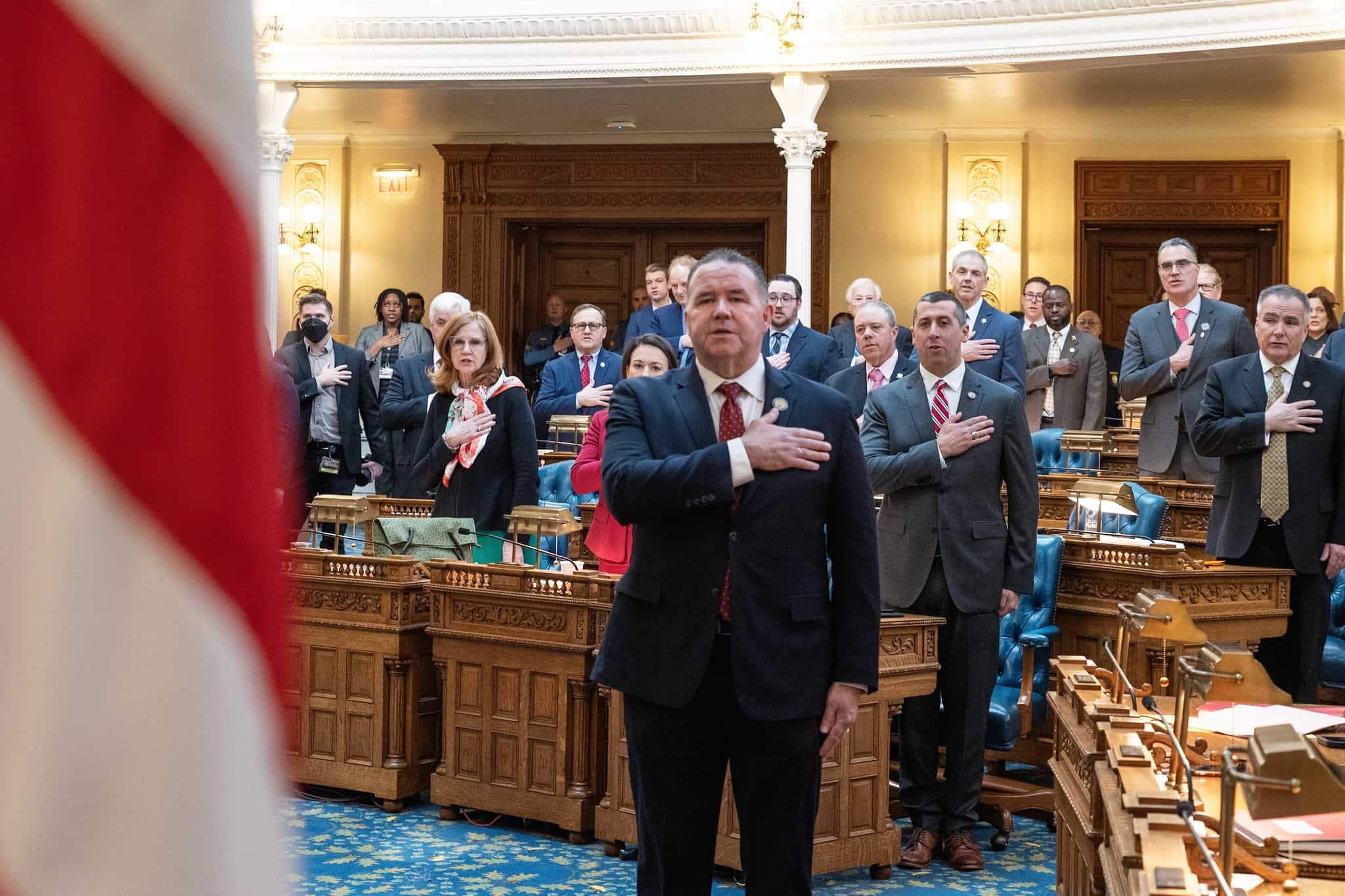By Assemblyman Alex Sauickie
Last week I wrote about budget resolutions I submitted to the Assembly Budget Committee to fund improved services for veterans. As a reminder, a budget resolution is an official document requesting specific changes to the governor’s proposed budget that reflect a legislator’s priorities.
Because they’re meant to reshape state spending priorities for the new budget year, I likened them to New Year’s resolutions, only they’re for you, not me.
This week, in part 2 of this series, I’m returning to what has been a top priority of mine since I was sworn in to the General Assembly: education. I’ve introduced a number of legislative bills intended to protect area school districts from the drastic state funding cuts due to the flawed school aid law known as S-2, and to create a new aid formula to stop this multi-year assault on our schools.
I sponsored the legislation that eliminated two-thirds of the proposed cuts in school aid, as it was the best option then available. But I also have a bill (A-5400) that finishes the job by eliminating the remaining cuts. One of my budget resolutions does the same, using only $53 million from the state’s $8-10 billion surplus – that’s 0.5% to 0.7% of the surplus.
As a backup plan, another resolution I proposed would fund “stabilization aid” at $100 million and restore “education rescue grants” with $20 million. Stabilization aid is for school districts facing state aid cuts or with a structural budget imbalance, meant to help the districts restructure their operations. Education rescue grants have been provided to fund rehiring or retaining teachers, or hiring similarly qualified teachers. This matches my bill, A-5399. The money would also come from a tiny percentage (up to 1.5%) of the budget surplus.
The state requires schools to provide transportation to nonpublic school students without providing enough money to pay for it. My bill A-5401 would address that
in districts where it’s a big problem due to unusually high growth in students who qualify for such transportation (or payments for private transportation). Those districts would get full state payment for those costs. I filed a budget resolution to do the same, again using a bit of the surplus.
This is based on a concept I gleaned from a court decision a few months ago. In March, an appellate court sent a case on school funding back to the lower court to consider whether the school funding law is constitutional in another school district with recent significant demographic trends. A formula that fails to anticipate and take into account such trends may not provide the thorough and efficient education that our state constitution guarantees. This is yet another strike against the school funding law.
Finally, but importantly, I filed a resolution to ensure all special education is fully funded by the state. There simply should be no reason and no incentive for schools to provide less than what a special education student may require to get a good – and constitutionally acceptable – education. While I believe schools normally do their best to make sure a special education student gets the attention and services needed, this is a way to help them do that as effectively as possible. State surplus funds would again be put to good use here.
Now, some may ask whether using the state’s budget surplus to cover these costs is really a good idea for a fiscally conservative legislator. As a long-time businessman, I understand finances and the need for a healthy surplus as part of a solid budget.
The question for me is whether having such an historically huge surplus is more important than preserving educational quality, especially when the amounts needed for the purposes I described above would be a virtually unnoticeable fraction of the surplus.
The answer is no. Shaving a paltry few percentage points off billions of dollars is worth a better education for over a million students.
I thank my math teachers for teaching me well.
Alex Sauickie is a life-long Jackson resident who represents his home town and 13 other towns in the State Assembly. Follow him on Facebook (/AssemblymanAlex) and on Instagram (@AssemblymanAlex), or visit his website at AssemblymanAlex.com.
###
Note: This opinion piece originally appeared in The Jackson Times by Jersey Shore Online in its publication dated June 17, 2023.
 in Cream Ridge.
in Cream Ridge.